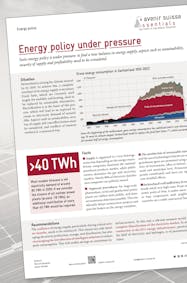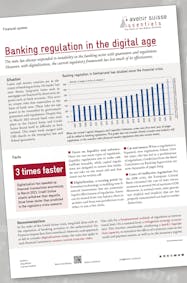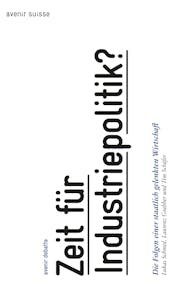Switzerland is intimately interconnected with its foreign markets. Since 1980, foreign trade per capita has tripled to just under SFr 100,000, while the country ranks eighth worldwide in terms of direct foreign investments. In 2015, no less than 67% of gross domestic product was earned abroad – proof that Switzerland’s openness is the foundation stone of its prosperity. In this new discussion paper, Avenir Suisse and senior fellow Patrick Dümmler call for policies to boost Switzerland’s economic relations with Europe and the world.
Bilaterals Plus
By far Switzerland’s biggest trading partner, with a 62% share, is the EU. This relationship should be deepened and the country’s tradition of striking bilateral treaties with Brussels strengthened. To that end, a new “Bilaterals Plus” packet of measures should settle current legal uncertainties and ensure Switzerland access to additional sectors, such as energy and financial services.
More free trade with non-EU states
Switzerland already has a relatively dense network of free trade agreements (FTAs). Existing deals with South Africa, Turkey and Canada should be extended; Indonesia, India, Brazil and Australia should be targeted; along with – post Brexit – Britain. Trade relations with the US, Switzerland’s second most important trading partner, should also be deepened. Should the TTIP not be signed, or Switzerland not be able to link in to it, Bern should strive to seal a free trade agreement with Washington.
Opening the domestic market
Domestically focused sectors of the economy, such as agriculture or services, are relatively underexposed to foreign competition or entirely shielded. Services should be stimulated by loosening current restrictions governing temporary staff transfers from EU or EFTA countries to Switzerland, allowing longer stays without additional red tape. And structural change in agriculture should be stimulated through further free trade agreements, to include farming
Matters are clear. As a mercantile nation, Switzerland is highly dependent on its foreign trade. Avenir Suisse’s response to critics of further opening is to call for a rational and factual discussion to ensure the country’s long term prosperity. Switzerland’s options in the event of a “post-bilateral” scenario are not very realistic: isolation in terms of foreign trade would cause long term harm to prosperity. The option of a yet more ambitious opening, via further bilateral treaties with the EU, while positive economically, would likely be extremely difficult politically.







